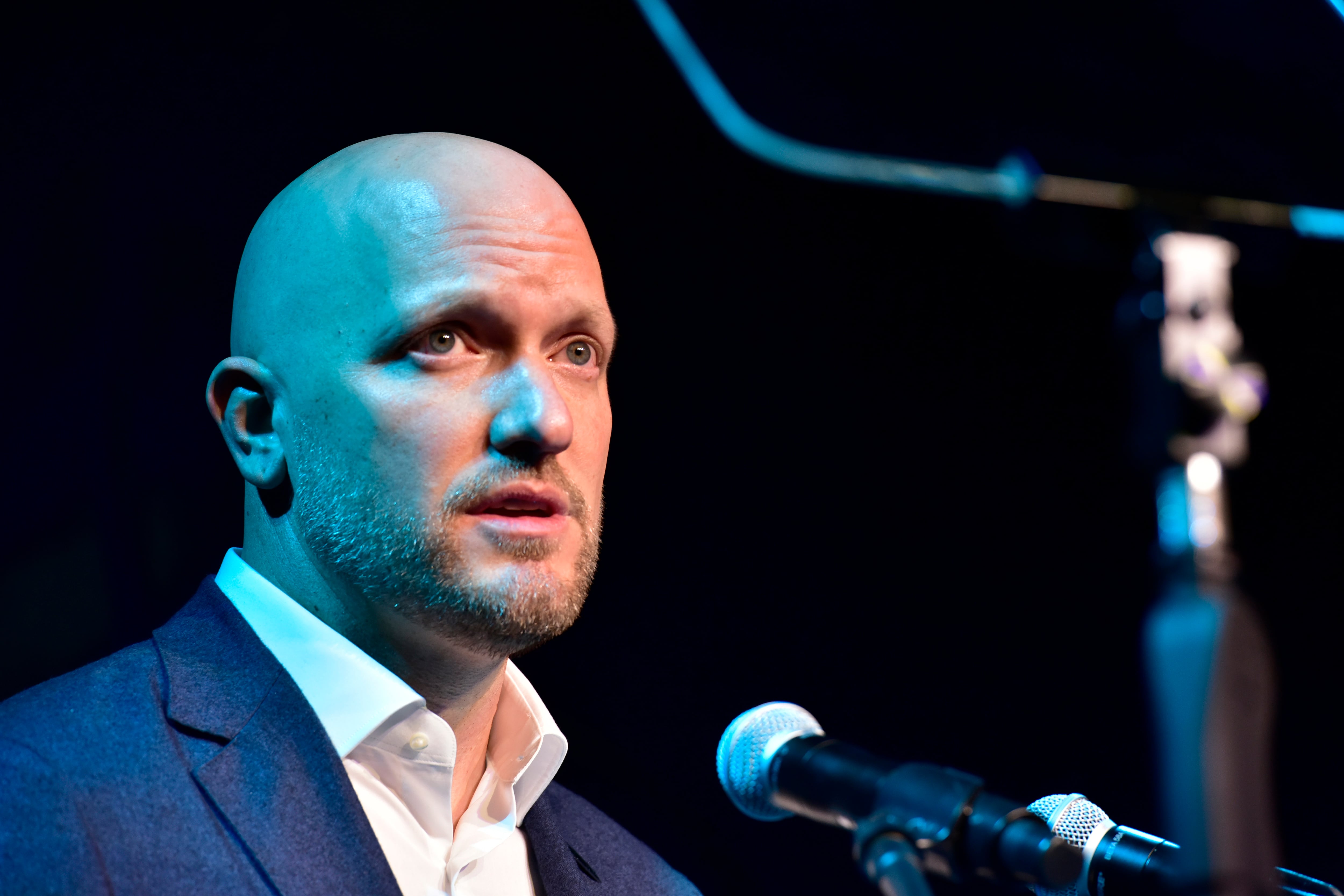Before Robert F. Kennedy Jr. ended his long-shot, independent bid for president last week, he beat expectations in his state-by-state battle to access ballots and left some voters intrigued about looking beyond the two-party system.
Increasing hostility between Democrats and Republicans in the lead-up to the 2024 election created an opening for unaffiliated or independent candidates, the Pew Research Center reported. Iraq War veteran Paul Rieckhoff seized on that moment, launching Independent Veterans of America earlier this summer.
Twenty years ago, Rieckhoff founded Iraq and Afghanistan Veterans of America, one of the largest organizations of post-9/11 veterans in the United States. Now, he’s looking to harness the recent interest in unaffiliated candidates by encouraging independent veterans to run for office.
While independents aren’t likely to win many spots this year — in the race for president or in other national, state and local elections — Rieckhoff is taking a long view, with his new group aiming to propel unaffiliated candidates onto ballots and someday spark a movement in which independents gain more votes.
“Independents can win. It’s possible this year, at the local level, undoubtedly,” Rieckhoff said. “And in the future, we’re trying to create an America where independents can win at every level, where people vote on the candidate and not just on the party.”
Veterans in particular have a political edge, and they bring a “voice of reason and clarity to politics,” he argued.
Rieckhoff said his new group isn’t focused on the presidential election this year. Instead, it’s vying to get independent veterans into other offices, ranging from local school boards to the U.S. Senate. Starting last week, candidates could apply to be endorsed by the group.
Candidates have until Aug. 31 to apply. To be considered for an endorsement, candidates must register as a member of Independent Veterans of America, file as an independent or unaffiliated candidate for office and complete an interview with the group’s leaders. Independent Veterans of America will confirm the military service record of all candidates, Rieckhoff said.
Those veterans selected by the group will receive funding, campaign management tools, voter data, media opportunities, technology training and the opportunity to speak at the group’s candidate convention in September in New York City.
“We’re going to get behind them as best we can,” Rieckhoff said. “We hope to be able to drive media attention, drive online support, drive volunteers and drive money. These folks are against the machine. We’re able to bring them together, and we think that’s going to be a powerful force.”
Independent Veterans of America is expected to announce its endorsed candidates next week. The first wave of endorsements is likely to include about a dozen candidates, Rieckhoff said.
Rieckhoff began interviewing some of those potential candidates in May on his podcast, Independent Americans. The first was Shelane Etchison, an Army veteran who’s running for Congress in North Carolina’s ninth district, home to Fort Liberty.
Etchison was based at Fort Liberty for the duration of her military service. She was part of a Cultural Support Team, a pilot program that inserted women alongside Special Operations soldiers on combat missions in Afghanistan.
She later deployed to Syria, where she served with Kurdish women to fight against the Islamic State. After 11 years in the Army, she earned two master’s degrees from Harvard.
The district where she’s running is a Republican stronghold, with the GOP holding it since 1963. Etchison is campaigning against the incumbent, Rep. Richard Hudson, R-N.C., who has served in Congress since 2013 and touts his status on his website as the “12th most conservative member of the House.”
“I don’t care how entrenched an incumbent is, we have to have competitive elections. We have to at least try,” Etchison said on the podcast. “People still need to have choices on the ballot. I’m excited they’re going to have another choice.”
Rieckhoff was inspired to create Independent Veterans of America by his experience serving as CEO of Iraq and Afghanistan Veterans of America. That group trained veterans to be political advocates in Washington.
Some of those veterans have since joined the Democratic or Republican parties and continued their careers, but most didn’t want to choose a party — and didn’t find their path in politics, Rieckhoff said. Since then, Rieckhoff said he has seen more veterans he knows skew independent.
According to a Gallup poll from January, independents constitute the largest political bloc, with 43% of U.S. adults identifying as such in 2023.
“There’s a promising generation of leaders that don’t want to be a Democrat or Republican,” Reickhoff said. “Especially now, with our bitterly partisan and divided political landscape, veterans want to be able to continue to serve without having to compromise their values to a party.”
This story was produced in partnership with Military Veterans in Journalism. Please send tips to MVJ-Tips@militarytimes.com.
Nikki Wentling is a senior editor at Military Times. She's reported on veterans and military communities for nearly a decade and has also covered technology, politics, health care and crime. Her work has earned multiple honors from the National Coalition for Homeless Veterans, the Arkansas Associated Press Managing Editors and others.




